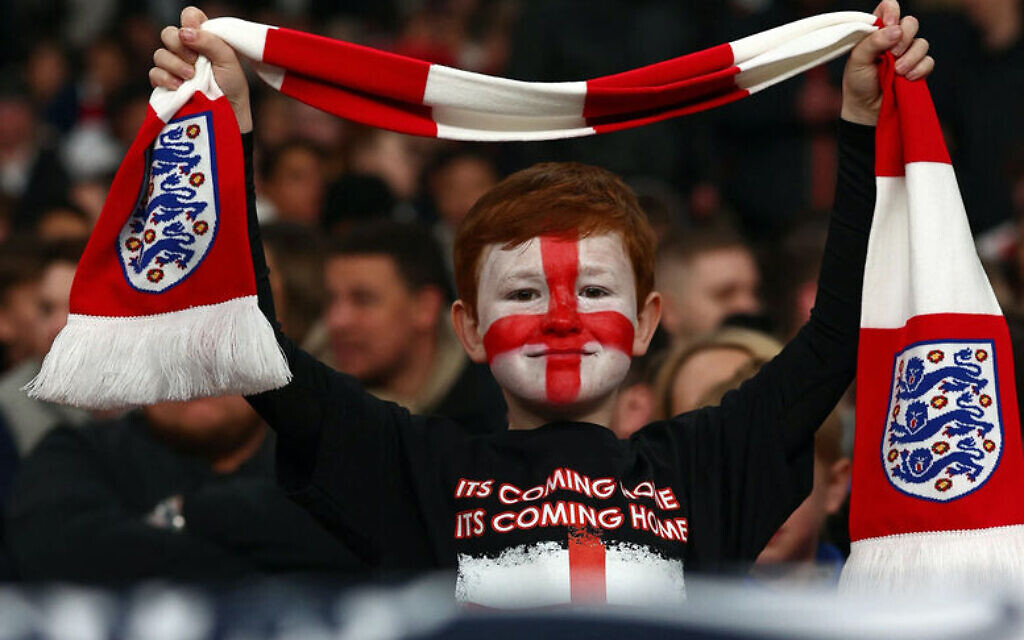Is Qatar our World Cup of tea?
Next week the global tournament kicks off in Qatar, but very few of us are cheering says one confused soccer enthusiast
Unfurl the banners, raise the flags, blow up the balloons and put the beers on ice. In case you didn’t realise, the World Cup finals kick off this month. You’d be forgiven for forgetting about football’s premier tournament, as the one taking place in Qatar doesn’t appear to be setting alight the hearts of too many fans.
There may even have been more excitement at the fact Liverpool has been awarded next year’s Eurovision. Putting politics to one side for a moment, why is no one shouting from the rooftops about Gareth Southgate’s England and their chances of lifting the Jules Rimet trophy?
After all, they finished runners-up at Euro 2020, the best performance by our national team since Bobby Moore wiped his muddy hands to accept the World Cup from the Queen in 1966.
Get The Jewish News Daily Edition by email and never miss our top stories Free Sign Up
This tournament appears to be getting in the way of what English football fans love: the regular season. The World Cup is traditionally held in June and July, rather than November and December.
We don short-sleeved England shirts, paint our faces red and white, hang small flags out of our car windows and pin large ones to the walls of our houses; we enjoy burgers and beers while watching the matches on big screens at BBQs on balmy summer evenings.
Not this time. English football, at least at Premier League and Championship level, will come to a standstill. For the best part of a month there will be no more Erling Haaland smashing goalscoring records for Champions-elect Manchester City, or Arsenal fans dreaming they are “back”. Instead, we’ll be monitoring our smart meters as closely as our TV screens as we hope and pray England captain Harry Kane can lead the national team to the biggest prize of all.

Even then, it won’t be the same, with games kicking off as early as 10am to avoid the searing heat of the UAE. Beneath the tolerant, progressive image being projected by the organisers, there are deep-rooted concerns that Qatar is not a nation deserving of Fifa’s greatest honour.
Human rights campaigners remain critical of Qatar’s record in the construction of the stadiums in which this winter’s extravaganza will be played, and anti-homosexuality laws are a barrier preventing some fans attending. Even the usually popular David Beckham, who married into a Jewish family and who doesn’t mind queueing, hasn’t done his reputation much good thanks to his role as an ambassador for Qatar – Judge Rob Rinder accused Beckham of “putting money before morals”.
Leading Jewish football agent Jonathan Barnett, whose clients include Wales star Gareth Bale, isn’t impressed with the location or timing of this year’s tournament. “It is absolutely ridiculous,” Barnett said. “The people behind the scenes at Fifa have to look at themselves and ask how this came about. I’m not going and, as a fan, I do not feel any excitement, and I can say that on behalf of all my friends too.”

“I travel around the world and there isn’t one person who wants to talk to me about the World Cup,” Barnett adds. “All they ask is whether or not I think Arsenal can stay at the top of the table. November is a great time in the domestic football season, you take your kids and watch your team play, so it is beyond belief that football is being brought to a standstill for four weeks.
“English football fans don’t want to watch football at 10 o’clock in the morning. It is beyond belief and Fifa has not justified the decision to host the event in Qatar. There hasn’t been the same build-up as you would have if it was held in the summer and I don’t think many people care about this World Cup.”
When it comes to Jews featuring at World Cup finals, the record books are painfully thin. Israel have appeared just once, in Mexico in 1970, earning two points in the Group stage. The nation has produced one top referee, Abraham Klein, who was an official at three tournaments: Mexico in 1986, Argentina (1978) and Spain (1972). Barely 5ft tall, Klein was one of the youngest referees at the Mexico tournament and his first game was England v Brazil.
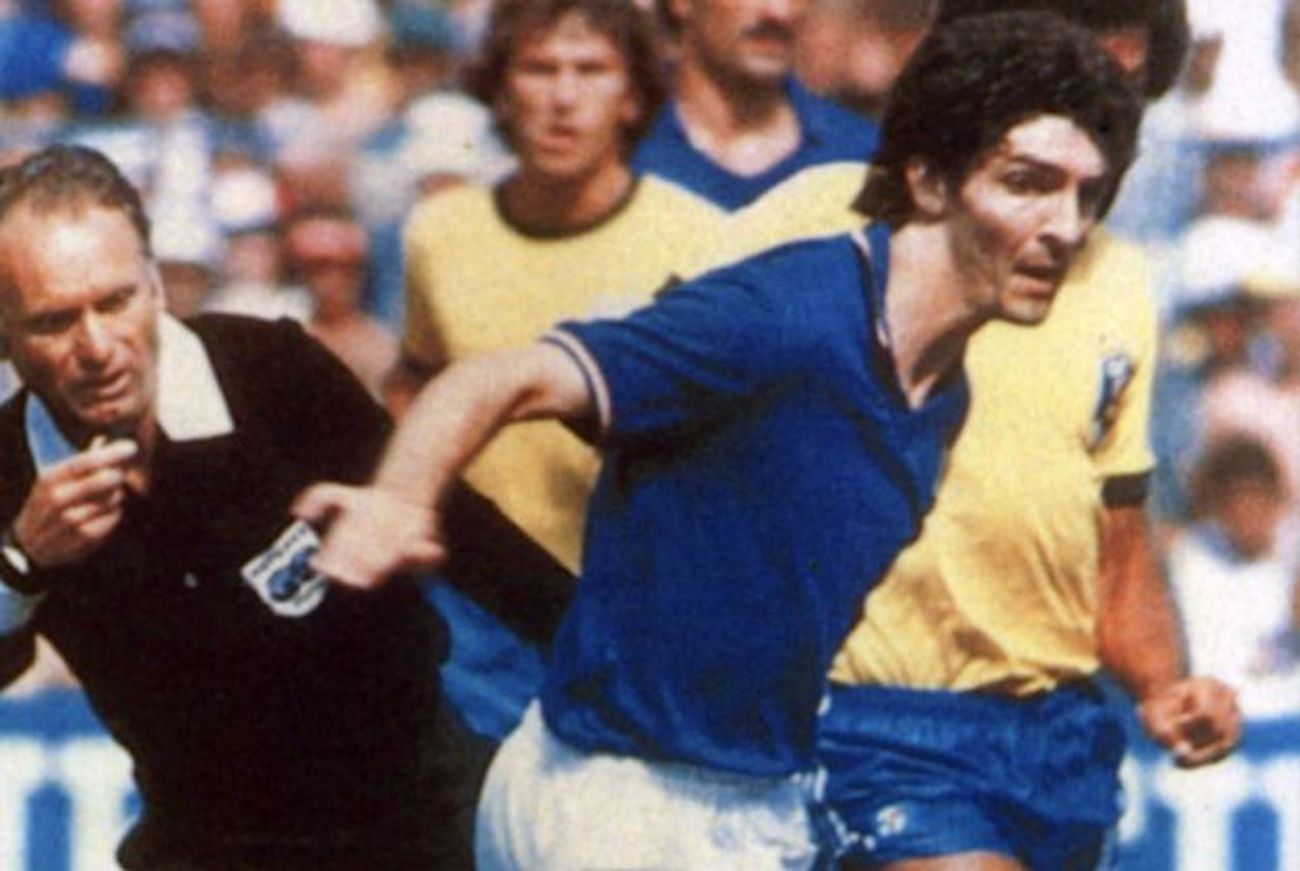
Over the span of the next four World Cups, Klein, now 88, proved his worth as one of the world’s leading referees, and his meticulous system for refereeing is outlined in his book The Referee’s Referee: Becoming the Best.
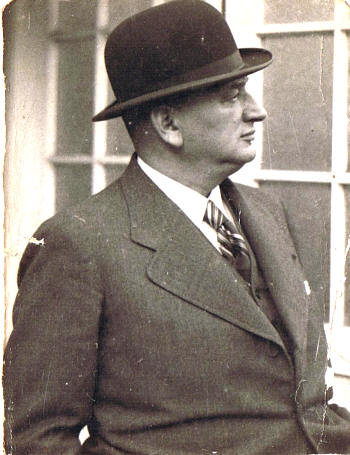
The other great Jewish football success was Hugo Meisel, an Austrian Jew who as manager led Austria to the semi-finals at the 1934 World Cup in Italy. But beyond him, there’s not much to shout about, unless we throw in Yossi Shai Benayoun, Israel’s most-capped player of all time, the late Avi Cohen and Rocket Ronny Rosenthal. All these Israelis played for English teams, but none had the chance to represent the homeland at the World Cup.
Chelsea fan and author Ivor Baddiel loves the World Cup. He loves it so much he has teamed up with Gary Lineker to write 50 Times Football Changed The World, which is an enlightening hardback for fans right now or as a third-night gift for Chanukah.
Given the book’s publication date, one would assume Ivor is counting the minutes until England gets the ball rolling against Iran on 21 November, but it appears he might not be looking forward to this World Cup as much as he normally would. “Fifa’s justification for taking the World Cup to Qatar was that it is good to spread football far and wide around the world. However, Qatar has no football pedigree whatsoever, so why go there?”
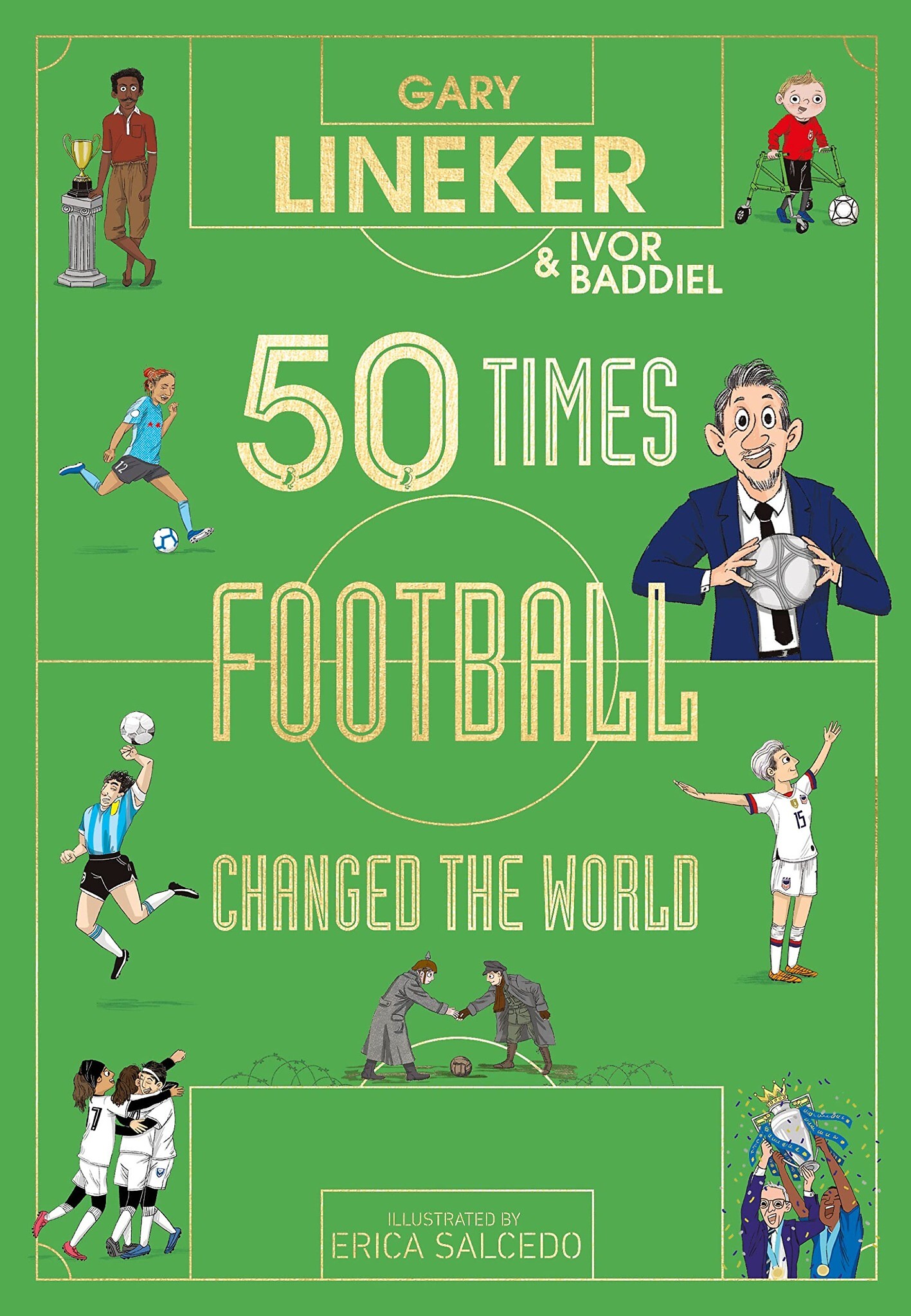
And he continues. “I get that Harry Kane will wear a rainbow captain’s armband to send a message against discrimination, and that Denmark will wear shirts that criticise Qatar’s human rights record, but these are small gestures. You can go to prison for being gay in Qatar. The big nations should have said ‘no’ to this World Cup and boycotted it. It’s a shame because I measure my life by how many World Cups I might have left, and the only way to get through this one will be to push all the horrible stuff out of your mind.”
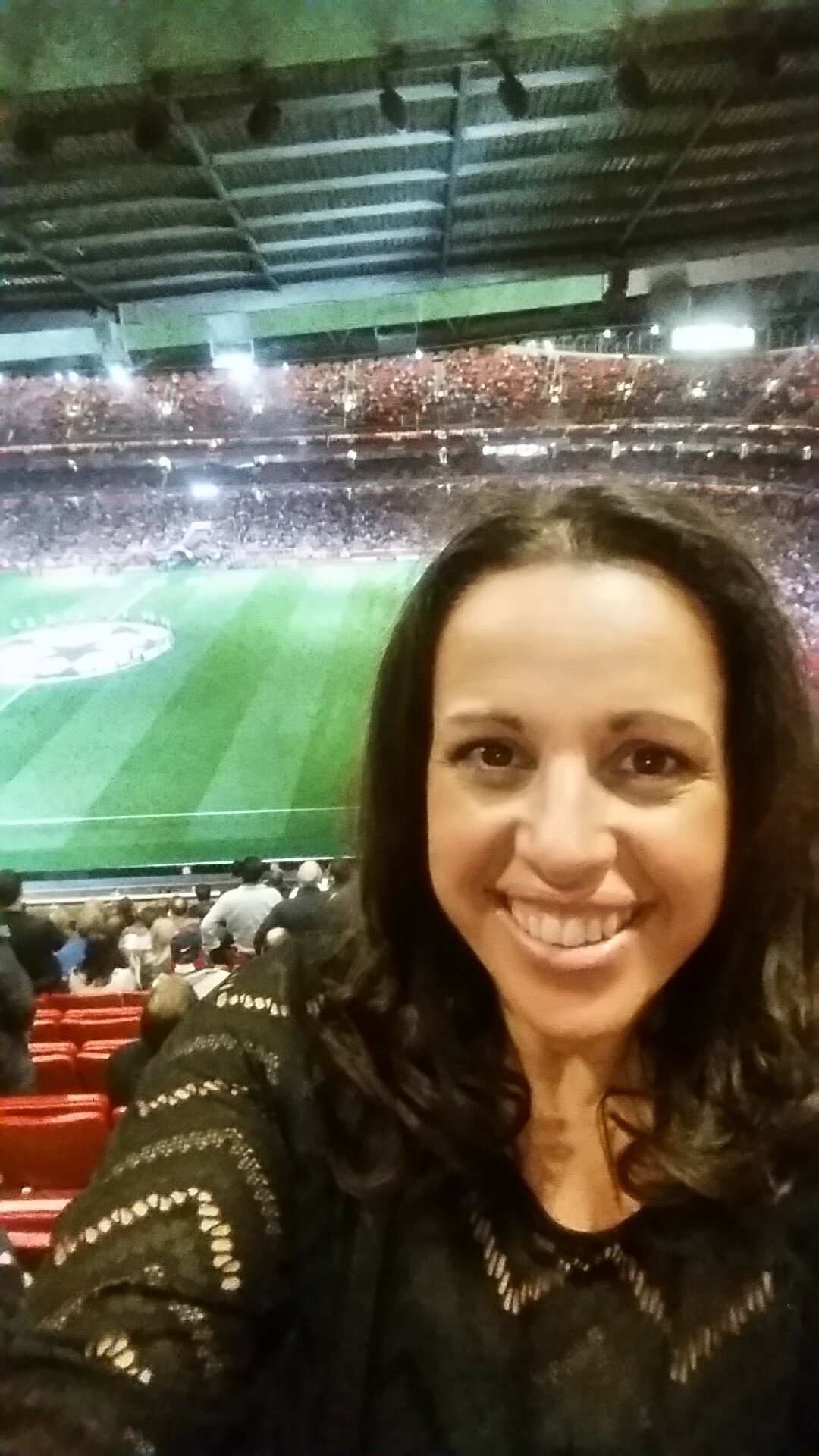
Some will be able to do just that, and battery-operated supporters have their tickets booked; but there are financial barriers for fans who aren’t willing or able to pay a four-figure sum for a flight, accommodation at exorbitant rates or match tickets which aren’t cheap.
Let’s just say a week-long trip, taking in a couple of matches, could set you back £7,000-plus, and there are stories of fans who will be sleeping on boats offshore to keep down the costs.
Amanda Schiavi, who hosts the podcast Same Old Arsenal, will keep an eye on the World Cup from home – but only to ensure none of her star players is injured. “This country is on its knees and as much as it would be great to see England go far in the tournament, I don’t really care,” said Amanda.
“A lot of Arsenal’s best players will be appearing for various countries and all I care about is that they don’t come home injured. I’m dreading the break from Premier League matches. It will feel like the start of Covid all over again when we had nothing, and I’m worried that Arsenal will lose momentum after our great start to the season.It doesn’t feel real. We haven’t even been talking about it on the podcast and my Twitter followers are just not bothered about it.”
A few miles across north London Daniel Wynne is a prominent fan who used to be the spokesman for the Tottenham Hotspur Supporters Trust. Few people know or love their football like Daniel, but he is so turned off by the World Cup he isn’t even planning to watch it.
He explained: “For the first half of it I’ll be on holiday abroad where there is little coverage and I won’t go out of my way to find a television. Normally when it is played I watch three or four games a day and say goodbye to my wife until after the final. I find the whole thing ridiculous, and clubs will be having ‘pre-season friendlies’ in December to integrate their players back into the set-up when they return from the tournament.”
One thing is for sure, this World Cup will be like no other before – just maybe for the wrong reasons.

Thank you for helping to make Jewish News the leading source of news and opinion for the UK Jewish community. Today we're asking for your invaluable help to continue putting our community first in everything we do.
For as little as £5 a month you can help sustain the vital work we do in celebrating and standing up for Jewish life in Britain.
Jewish News holds our community together and keeps us connected. Like a synagogue, it’s where people turn to feel part of something bigger. It also proudly shows the rest of Britain the vibrancy and rich culture of modern Jewish life.
You can make a quick and easy one-off or monthly contribution of £5, £10, £20 or any other sum you’re comfortable with.
100% of your donation will help us continue celebrating our community, in all its dynamic diversity...
Engaging
Being a community platform means so much more than producing a newspaper and website. One of our proudest roles is media partnering with our invaluable charities to amplify the outstanding work they do to help us all.
Celebrating
There’s no shortage of oys in the world but Jewish News takes every opportunity to celebrate the joys too, through projects like Night of Heroes, 40 Under 40 and other compelling countdowns that make the community kvell with pride.
Pioneering
In the first collaboration between media outlets from different faiths, Jewish News worked with British Muslim TV and Church Times to produce a list of young activists leading the way on interfaith understanding.
Campaigning
Royal Mail issued a stamp honouring Holocaust hero Sir Nicholas Winton after a Jewish News campaign attracted more than 100,000 backers. Jewish Newsalso produces special editions of the paper highlighting pressing issues including mental health and Holocaust remembrance.
Easy access
In an age when news is readily accessible, Jewish News provides high-quality content free online and offline, removing any financial barriers to connecting people.
Voice of our community to wider society
The Jewish News team regularly appears on TV, radio and on the pages of the national press to comment on stories about the Jewish community. Easy access to the paper on the streets of London also means Jewish News provides an invaluable window into the community for the country at large.
We hope you agree all this is worth preserving.
-
By Brigit Grant
-
By Laurent Vaughan - Senior Associate (Bishop & Sewell Solicitors)
-
By Laurent Vaughan - Senior Associate (Bishop & Sewell Solicitors)
-
By Laurent Vaughan - Senior Associate (Bishop & Sewell Solicitors)
-
By Laurent Vaughan - Senior Associate (Bishop & Sewell Solicitors)


